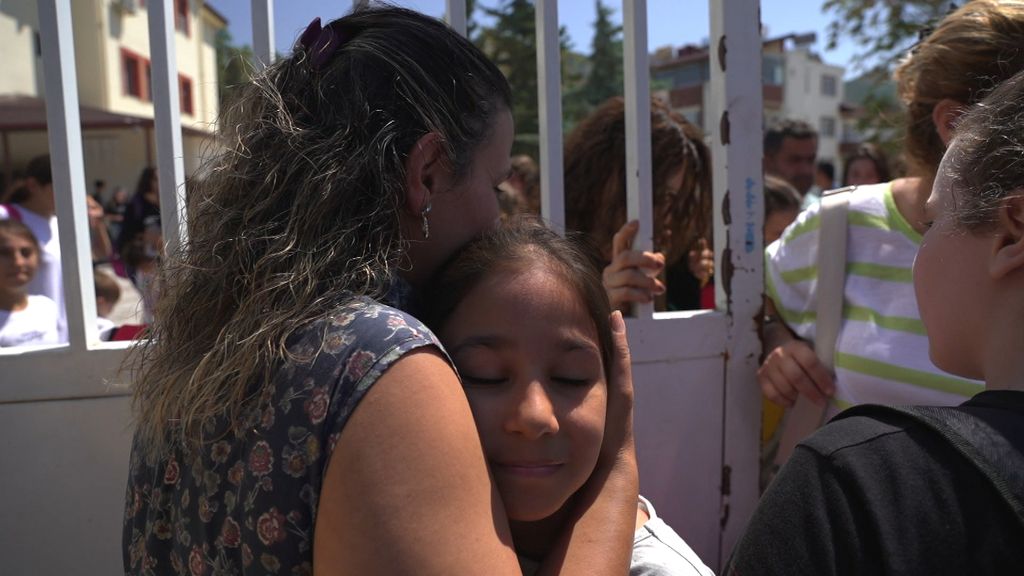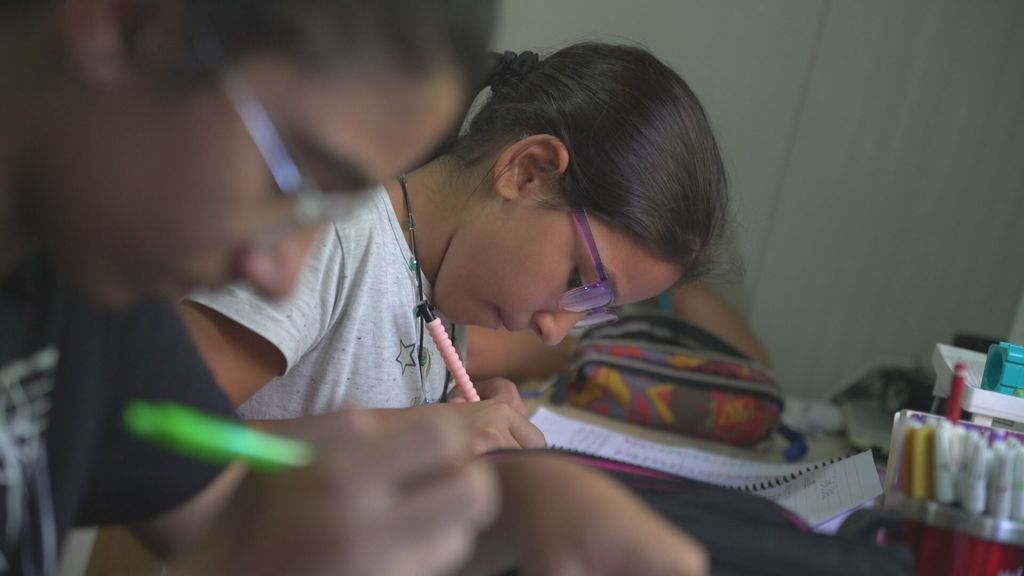Noos News•
-
Mitra Nizar
Türkiye correspondent
-
Mitra Nizar
Türkiye correspondent
In the earthquake zone in southeastern Türkiye, children are returning to school. Formal education resumed last week for the first time in seven months. In the worst-hit province of Hatay, there were mixed feelings. There was a lot of sadness, fear and anxiety.
For seven months, Feliz Camelica and her husband were always with their four children. The earthquakes have completely turned their lives upside down, like the lives of many people. Their house outside the city of Hatay was severely damaged and uninhabitable. They lost their loved ones, neighbors and relatives. They had to survive for several months. First, a tent was built, and later a container house was built in their backyard.
She says the children were relieved to finally be able to return to school last week. But it was also radical. “They are doing their best to continue with their lives, but I can’t say they are doing well,” Velez said. An earthquake easily scares her children, especially when it rains or thunderstorms. “Then they sleep poorly and feel anxious. We all went through it that night when the first earthquake happened. The shaking, the storm, the extreme weather, it all came at once. And the children still get upset regularly.”
Our correspondent Mitra Nizar visited the first school day in the earthquake zone of Hatay:

Seven months after the major earthquakes that struck Turkey, schools have reopened
They are concerned about the safety of the school building. It is located in the heart of Antakya, the area where the devastation after the disaster was greatest. The ruins of collapsed buildings are still everywhere, but the school building remains standing.
“They say the building is safe, but the kids tell us there is a big crack in the middle of the building.” As parents, they are in the dark, but they have no choice. “We send our children to school and we are afraid. Because education is important. But we have no guarantees that education is safe.”
An estimated 23,000 people were killed in Hatay. This represents nearly half of the total number of victims spread across 11 provinces in southeastern Turkey. The disaster left about four million children without education.
When schools reopened on September 11, many children encountered classmates who were no longer there. “It hurts them a lot,” Velez says. “A number of their friends died along with their parents. We only know some of them now.”
Even the school uniform I was wearing remained under the rubble
It has also been an emotional week for teachers. Mathematics teacher Nourdin Polat lost many of his classmates at the high school where he worked for twelve years. “I’ve known for some time that they’re dead. But walking around the school makes it more difficult. Everywhere you look, you see things that remind you of those classmates who are no longer there.”
He says the first week of school was chaotic. There are still many problems. For example, there are very few school buses, and there is a shortage of accommodation for teachers who have lost their homes or come from other parts of the country. There are reports that teachers are having to sleep in their cars to get to school on time.
Another problem is the living conditions of students. Many children live in camps that lack good facilities. Teacher Bulat checks in regularly after school to see how things are going there.
In one of the tents he talks with sixteen-year-old Betul. Before the earthquake, she was serious about school because she wanted to become a doctor. With tears in her eyes, she says it is impossible for her to be able to study for her exams in the tent. “I don’t have the right books. I don’t even have a table or a chair. There’s no internet, I don’t have a tablet anymore. Even my school uniform is left under the rubble. I’m completely fine.” ‘ end.”
Tears stream down her cheeks as she talks about how it feels to see her classmates again. About how they talked about that friend who died under the rubble after a wall fell on her. “It’s a terrible way to die,” the sixteen-year-old says with a sigh.
“Without their minds”
Mathematics teacher Bulat sees that his students are not mentally prepared for school work. “Children who lost loved ones or were trapped under rubble. Their minds are not there, it is as if they are living in another world. I am talking about the majority of students.”
It is believed that attention to the mental state of children is seriously lacking in school. “We had to focus on math and science from day one. But these kids are traumatized. Then you have to do other things for the first few months. There should be a special program for that. Psychological support.” He is also sentimental himself. “These children should be our priority. They are our hope. We must save them first, and only then can the rest of them recover.”







